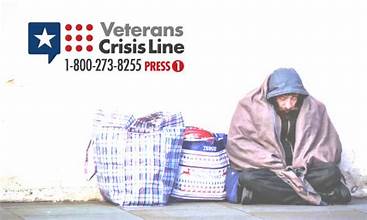Introduction:
In a world that often glorifies success stories, the struggle of the economically disadvantaged is frequently overlooked. The barriers to entry for those looking to break the cycle of poverty and start their own business can be insurmountable, with financial constraints, damaged credit, and a criminal record serving as formidable roadblocks. In this blog post, we will explore the urgent need for a more inclusive and equitable system to support individuals in their quest to start a small business, regardless of their past challenges.
The Overlooked Struggles:
For many individuals, the dream of entrepreneurship is not just a desire for financial stability but a beacon of hope for a better future. However, systemic issues often stifle these aspirations. The inability to secure loans or assistance due to poor credit and a criminal record creates a cycle of despair, making it nearly impossible for individuals to escape the clutches of poverty.
The $10,000 Dilemma:
As exemplified by personal stories, such as that of our author, a relatively modest amount, like $10,000, could be the catalyst for positive change. This sum, though seemingly small in the grand scheme of economic disparities, has the potential to lift someone out of poverty, enabling them to establish a small business and secure a brighter future. Unfortunately, the current system fails to recognize this potential, leaving countless individuals trapped in a cycle of poverty.
The Role of Credit and Criminal Records:
Credit history and criminal records often serve as arbitrary indicators of an individual’s worthiness for financial support or employment. For those who fell into financial hardship early in life, such as our author, the repercussions can be lifelong. The system’s reluctance to acknowledge personal growth and redemption perpetuates a cycle of despair, preventing individuals from contributing positively to society through entrepreneurship.
The Need for Systemic Change:
To break the chains of economic inequality, a fundamental shift in our approach is required. Here are a few key areas where systemic change is urgently needed:
- Alternative Assessment Metrics: Develop alternative metrics for assessing an individual’s eligibility for financial support or employment, considering personal growth and rehabilitation rather than solely relying on credit scores and criminal records.
- Accessible Financial Assistance: Establish accessible financial assistance programs that cater specifically to individuals with a history of financial struggles. This could include low-interest loans, grants, or community-based funding initiatives.
- Education and Mentorship Programs: Implement educational and mentorship programs to equip aspiring entrepreneurs with the knowledge and skills necessary to run a successful business. These programs can help bridge the gap for those who may have lacked traditional educational opportunities.
- Community Support: Foster a sense of community support by encouraging local businesses, organizations, and government bodies to actively engage in the economic empowerment of marginalized individuals. This can include creating partnerships with local businesses to provide job opportunities or mentorship.
Conclusion:
In the pursuit of a fair and just society, it is imperative that we address the systemic issues preventing aspiring entrepreneurs from breaking free from the shackles of poverty. By reevaluating our criteria for financial support and employment, establishing accessible assistance programs, and fostering a sense of community support, we can pave the way for a more inclusive and equitable future—one where everyone, regardless of their past, has the opportunity to build a better life through entrepreneurship. It’s time to redefine success and empower those who have been overlooked for far too long.
Escaping the cycle of poverty often requires a shift in perspective, particularly concerning the traditional notion of employment. Many argue that working for someone else, especially in low-wage jobs, perpetuates a scenario where individuals are constantly tethered to financial instability. The reality for many living paycheck to paycheck is that despite putting in long hours, there’s a perpetual struggle to make ends meet. This is exacerbated by the precarious nature of renting, always teetering on the edge of disaster with little room for financial resilience.
One fundamental issue is that traditional employment often offers limited upward mobility and financial growth. Even as individuals dedicate the majority of their waking hours to a job, the compensation may not be sufficient to break the cycle of poverty. With rising living costs and stagnant wages, the dream of accumulating wealth or achieving financial independence becomes increasingly elusive.
Entrepreneurship, on the other hand, is often touted as a pathway to true economic empowerment. While starting a business involves risks and challenges, the potential for generating wealth is significantly higher. By creating and managing their own enterprises, individuals have the opportunity to build assets, make strategic financial decisions, and control their economic destinies. This autonomy can be a crucial factor in breaking free from the limitations imposed by traditional employment.
Moreover, entrepreneurship provides the chance to create a lasting legacy. Building a business not only offers financial benefits but also allows individuals to contribute to their communities and create jobs for others. It is a means of not only securing one’s financial future but also positively impacting the lives of others.
In essence, the call for individuals to consider entrepreneurship as a means to escape poverty is rooted in the belief that financial independence is more achievable when one has control over their economic destiny. While it’s undoubtedly a challenging path, the potential for long-term success and the ability to build wealth make it a compelling alternative to the cyclical struggle of working for others and living paycheck to paycheck.
Twenty-Five Small Biz Start-Ups For under #10k
Starting a small business with a budget of $10,000 can be a viable and exciting venture. Keep in mind that success depends on factors like market research, dedication, and strategic planning. Here are 25 small business ideas that can be launched with around $10,000 and without requiring special tools: and little to no prior experience.
- Freelance Writing Services: Offer content creation services to businesses and individuals.
- Online Retail Store: Start an e-commerce store selling niche products.
- Handmade Crafts: Create and sell handmade crafts on platforms like Etsy.
- Consulting Services: Offer consulting services in your area of expertise (marketing, business, etc.).
- Event Planning: Start an event planning business for weddings, parties, or corporate events.
- Personal Chef/Catering: Provide personalized chef or catering services for special events.
- Digital Marketing Agency: Offer digital marketing services to small businesses.
- Fitness Coaching: Become a fitness coach, offering personalized workout plans.
- Language Tutoring: Offer language tutoring services either locally or online.
- Social Media Management: Manage social media accounts for businesses and individuals.
- Home Cleaning Services: Start a residential cleaning business.
- Graphic Design Services: Provide graphic design services for businesses and individuals.
- Dropshipping Business: Start an online store without holding inventory.
- Landscaping Services: Offer lawn care and landscaping services in your community.
- Mobile Car Wash: Provide car washing services at clients’ locations.
- Pet Sitting/Dog Walking: Start a pet care service for busy pet owners.
- Online Coaching: Offer coaching services in areas like life, career, or wellness.
- Virtual Assistant: Provide administrative support services to businesses remotely.
- Photography Services: Offer photography services for events or portraits.
- Handyman Services: Provide basic repair and maintenance services for homes.
- Personal Stylist: Start a personal styling business for individuals or events.
- Subscription Box Service: Curate and sell niche products through a subscription box.
- Fitness Equipment Rentals: Rent out fitness equipment for home workouts.
- House Painting Services: Offer residential painting services in your local area.
- Blogging/Vlogging: Start a blog or YouTube channel and monetize through ads and sponsorships.
Remember, success in any business is not solely dependent on the initial investment but also on your dedication, market research, and adaptability. Before starting any venture, thoroughly research the market and create a detailed business plan to set yourself up for success.






